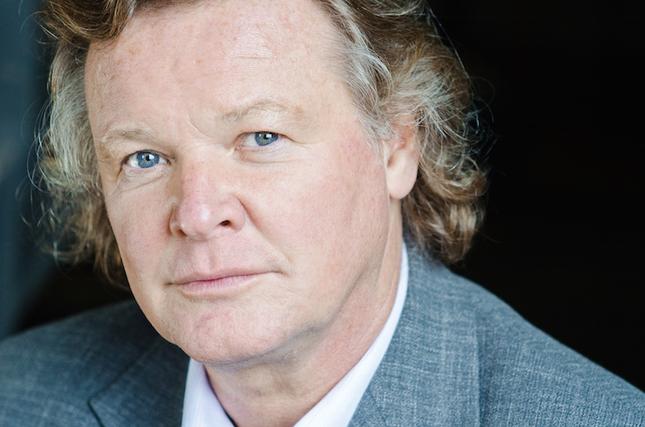Davies Takes on ‘Tempest’-tossed Prospero
By • January 29, 2015 0 1187

Among many of the strands weaving, dancing, spiraling through Shakespeare’s “The Tempest” like a dream are endings: the end of Prospero’s magic, the end of the story. The lines and speeches are some of Shakespeare’s most beautiful and vexing, and, for an actor most challenging.
For Welsh actor Geraint Wyn Davies, they’re certainly a challenge, but also an opportunity. “You really have to listen to the lines, always, see what Prospero’s actually doing her,” Davies said. “In such a central part as this—Prospero is magician, manipulator, betrayed brother by his brother, a kind of king of this realm—they’re a temptation to do too much with it. It has to be clear.”
Watching (and listening) to Davies, you suddenly get a sense of the complexity of Prospero, and certainly the echo of the playwright, because “The Tempest” is one of Shakespeare’s last, and making play’s is also a perpetual act of making magic.
Having caused a storm to wreak havoc on his brother who betrayed him, having enslaved Caliban, having used the sprite spirit Ariel with a promise to free him, having staged an impressively magical show for his daughter and her new found love, have sought and achieved a kind of revenge, Prospero loosens the strands of control, almost sadly, quietly, a little bit at time, with potion-like poetics. Davies does this almost casually, elegantly, with the force of thoughtful, quiet feeling and a clarity that in the final end, is wrenching, objuring rough magic, with the same effect as wielding its wand.
It’s a surprise, coming from Davies, who’s been known to dominate a stage with bravado, and who looks in person just like the sort of man who would want to do that, being Welsh and all and a naturally sort of outgoing fellow
“Ah, the Welsh thing,” Davies said. “I think being Welsh is simply about being creative, the imagination, a love, a passion for words, words. And a pint or two doesn’t hurt.”
The model for the gifted, self destructive artist is Dylan Thomas, the Welsh poet—“do not go gentle into that good night, rage, rage against the dying of the light”—whom Davies portrayed on stage. “That was a wonderful part, but a difficult challenge. To live within his skin as he struggled was exhausting.”
Davies does not play small, ordinarily. Washington audiences know him well for three outstanding performances at the Washington Shakespeare Company. “My favorite is, of course, Cyrano as in “Cyrano de Bergerac,” because that’s where I met my wife.” That would be the actress Claire Lautier, who played Roxanne, the object of Cyrano’s hopeless affections, competing with the dashing Christian. “Roxanne is actually a difficult part for any actress,” Davies said. “She doesn’t see Cyrano’s real qualities until it’s almost too late.”
Davies played Cyrano with dash and flash, almost like a 16th-century French super hero, whose special talents could be summed up with as having: boundless courage, world-class work with a rapier and a man who could use poetry and rhyme like a cannonade of insults.
Davies won a Helen Hayes award for best actor in a resident play for “Cyrano.”
He also played the devious but very audience-friendly “Richard III” and Don Armado in “Love Labour’s Lost,” an emotive aristocrat who, in Davies’ performance, embodied the phrase “high dudgeon.”
Davies is a star at the Stratford Festival, where he appeared in “Measure for Measure” and “Mary Stuart” in 2013. He is the son of a preacher.
“I love performing in Washington,” he said. “I love being here. I was sworn in as a citizen (by Supreme Court Chief Justice Ruth Bader Ginsburg) here.”
“With Prospero you have to be careful,” he said. “He’s a man who ultimate chooses—reluctantly perhaps—to give up control, and not to take revenge, to free Ariel, to give up. It’s an end to things and a summation of his life, too.”
And so, on Sunday, January 18, Davies too, inside of Prospero, speaking out, clearly will come to an end of something, and he will say so thusly:
“Our revels now are ended. These our actors. /As I foretold you, were all spirits and are melted into air, into thin air.”
And he will say—“We are such stuff as dreams are made on, and our little life is rounded with a sleep.” He will drown Prospero’s book and bring the play to and for this time around.

